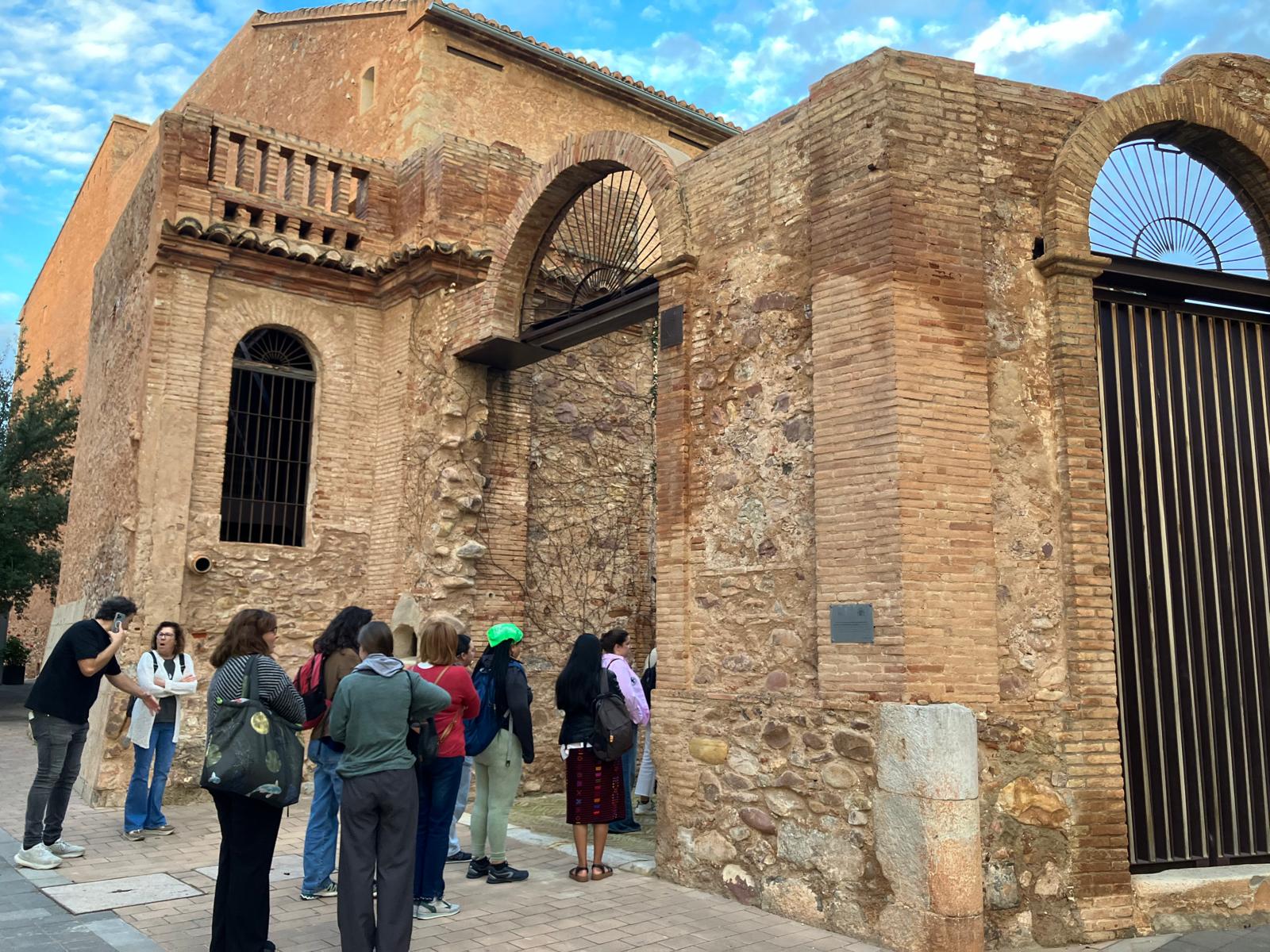At the Palau-Castell de Betxí, more than a hundred voices gathered for the 3rd International Conference on Agroecology and Women to discuss the challenges and opportunities of a fair, sustainable, and human-centered agricultural model.
Amid Renaissance stone walls and the scent of soil, agroecology emerged as a universal language of respect, equality, and hope.
By M.ª Pilar Rueda Requena
HoyLunes – On the 24th, the “3rd International Conference on Agroecology and Women” was held in Betxí (Castellón). The event was co-organized by the Novessendes Foundation, the Pau con Dignidad Association, and the José Luís Porcuna Chair of Agroecology (UPV).
The venue for this event was the Palau-Castell de Betxí, one of the finest examples of Renaissance architecture. This monument was declared a “Site of Cultural Interest” on March 3, 1997. After ten years of restoration, it remains well worth a visit and currently houses part of the municipal offices. Its beauty and historical significance provided an incomparable setting for a day that brought together over 120 participants and more than 10 organizations.
The conference served as a space for reflection, cultural exchange, and the presentation of initiatives and projects, both local and international — all related to human rights, eco-social transition, and the defense of common goods such as land, water, respect for nature, and the fight against climate change.
The participating organizations are key actors in a transformative shift within the agricultural system, promoting ecological cultivation and avoiding the use of chemically treated water.
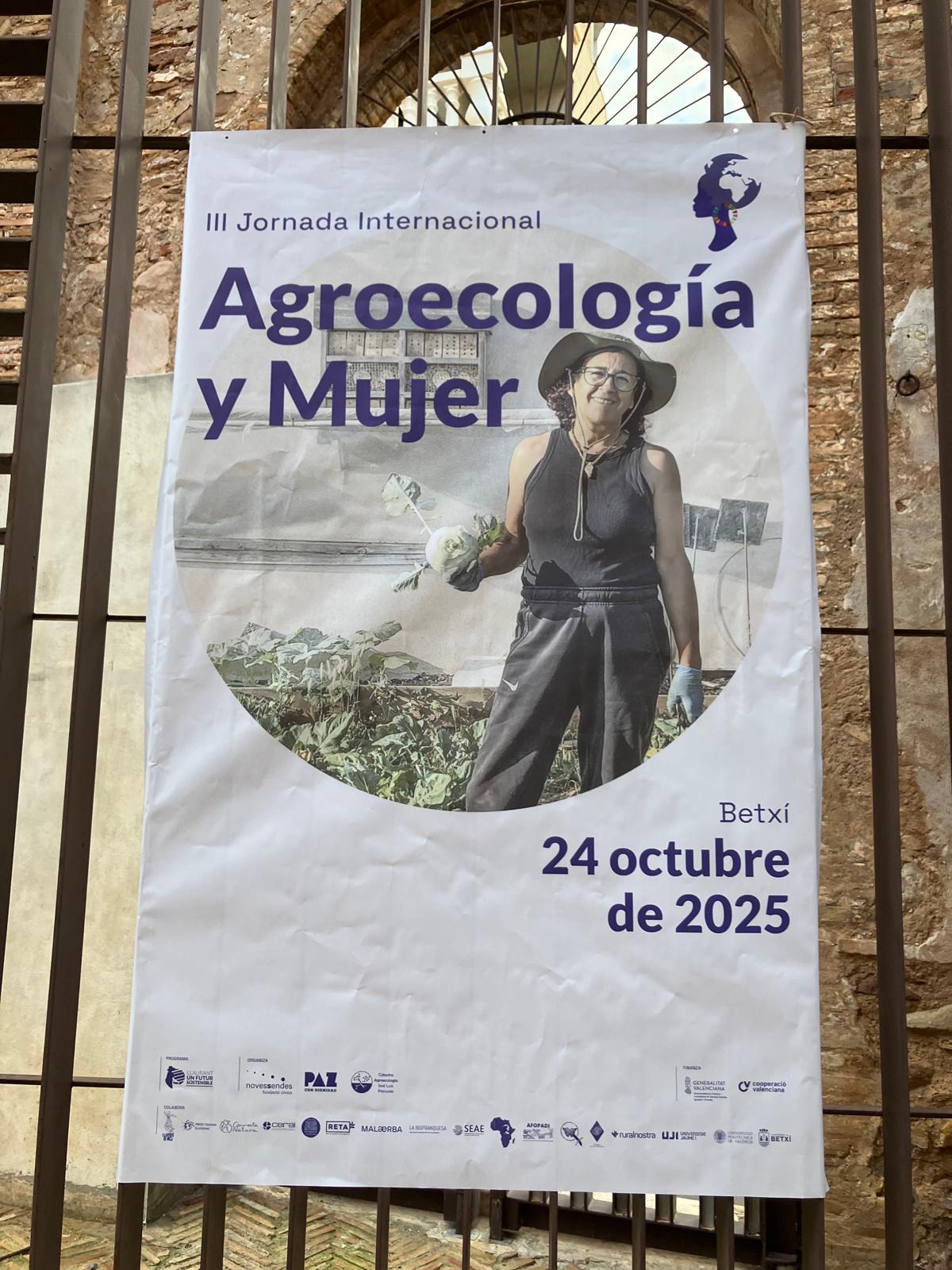
The capitalist and consumerist economic model leads us toward an industrialized agriculture designed to achieve maximum profitability at the expense of natural and human resources, causing severe social and environmental impacts, and even direct repercussions on human health.
During the conference, reference was also made to the implicit violence behind the loss of value and respect for traditional crops, whose origins are often ancestral. Seeds that have been cultivated for generations — carrying history and connection to the land — are now being replaced by hybrid or genetically modified seeds created in laboratories.
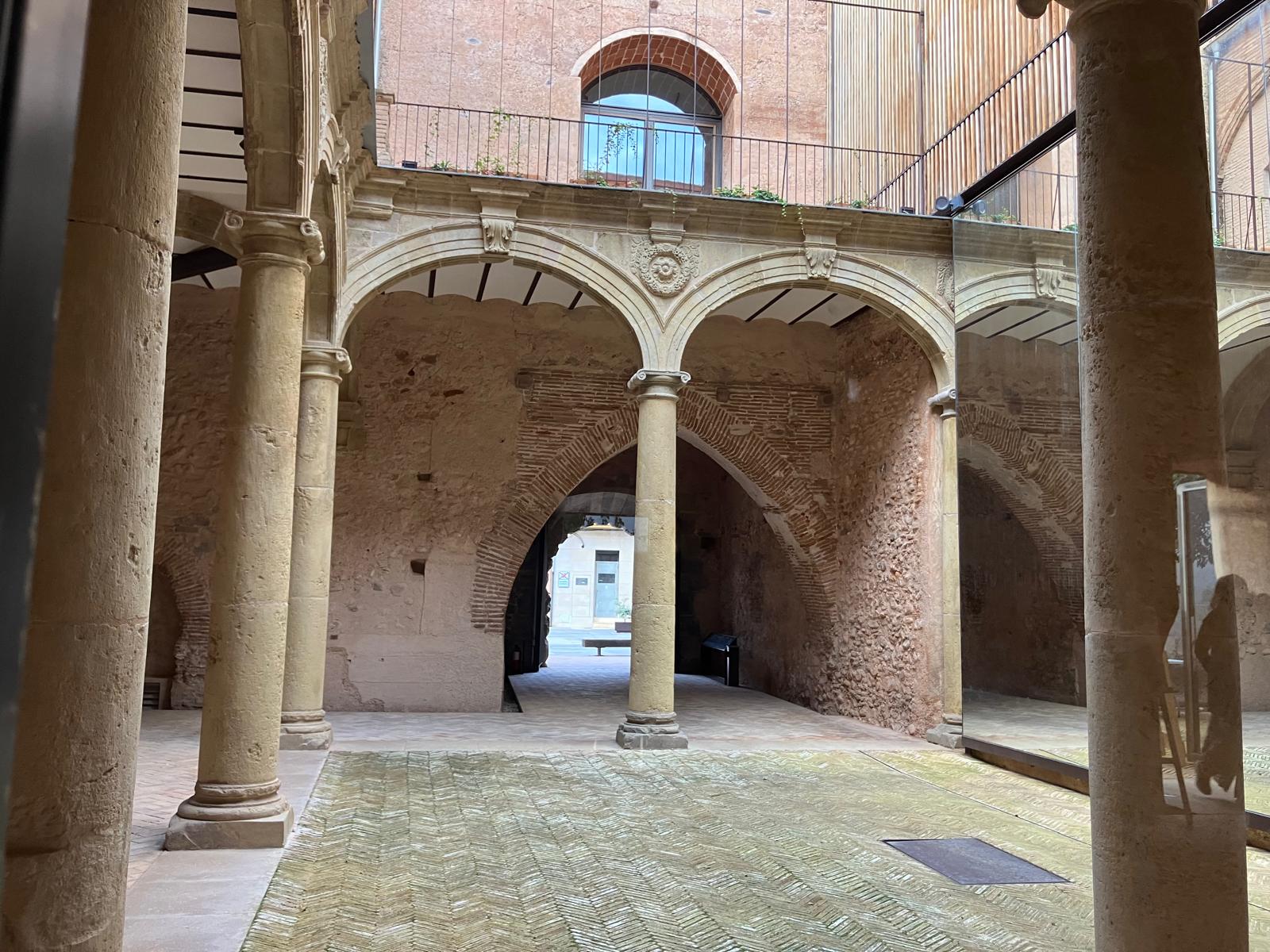
Agroecology, on the other hand, combines traditional and scientific knowledge, promoting sustainable, resilient, and just agricultural systems. Its main focus lies in protecting biodiversity, improving soil health, and benefiting rural communities.
Globally, international organizations, farmers’ movements, governments, and countries across Asia, Latin America, and Africa are adopting these agricultural models to reduce the use and impact of chemical products, strengthen local communities, and promote more sustainable food production.
The primary goal of many agro-food initiatives is to protect and defend food sovereignty, thus contributing to the empowerment of territories and communities.
It is essential to adopt an integral vision of nutrition, for “we are what we eat”.
One of the participating researchers, originally from Guatemala, spoke as a descendant of the Mayan indigenous peoples and expressed her view of water and land as entities endowed with rights.
The contributions of the Coordinadora Red Espacios Test Agrarios, developed by another organization, emphasized the value of this work in harmony with local agriculture and livestock farming, supported by a mentor who guides and facilitates technical learning, creating job and life opportunities for young entrepreneurs.
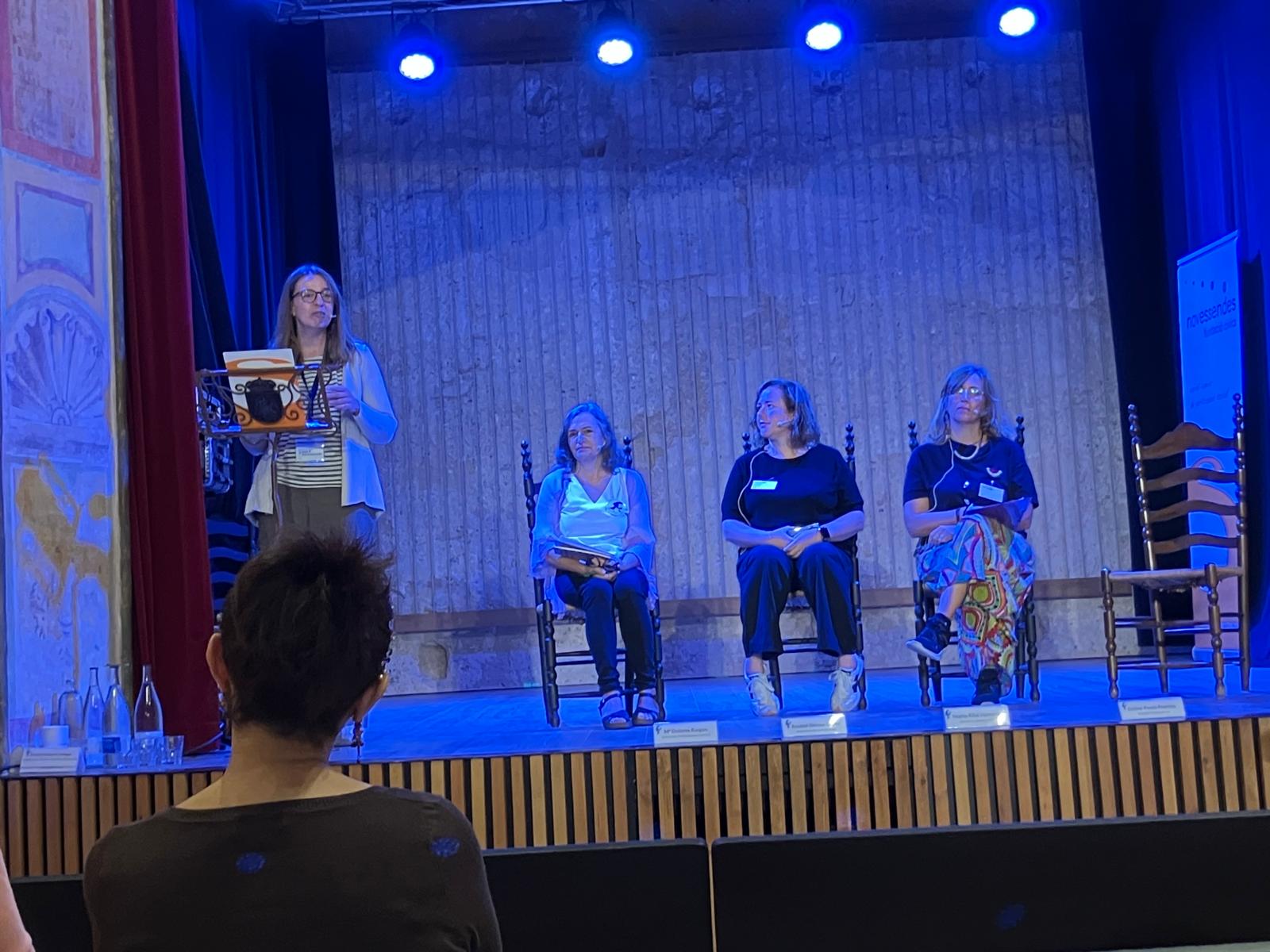
The impact of agriculture on women varies from country to country, yet certain biases persist across all.
For instance, in both some Nordic nations and Latin American countries, farmland owned by families is usually inherited by men. If a woman wishes to engage in agriculture, she often needs to marry in order to work the land.
In many cases, even when the eldest child is a daughter, inheritance passes to the next male heir.
Nevertheless, women’s participation in agriculture worldwide has been — and continues to be — highly significant. Despite this, they still face obstacles and inequalities, such as limited access to agricultural knowledge, land ownership, and credit, which restricts their opportunities and development.
Agroecology offers a pathway to build sustainable and fair agricultural systems worldwide. Although both men and women participate in agriculture, inequality in access to resources and land rights remains.
Different conceptions of property and inheritance shape the social and economic structure of rural life, particularly affecting women, who need greater recognition and support to improve their conditions and rights in rural settings.
Conceptions of land ownership vary both culturally and legally. In some countries, land is viewed as a communal asset or hereditary right, while in others, the system of private property prevails.
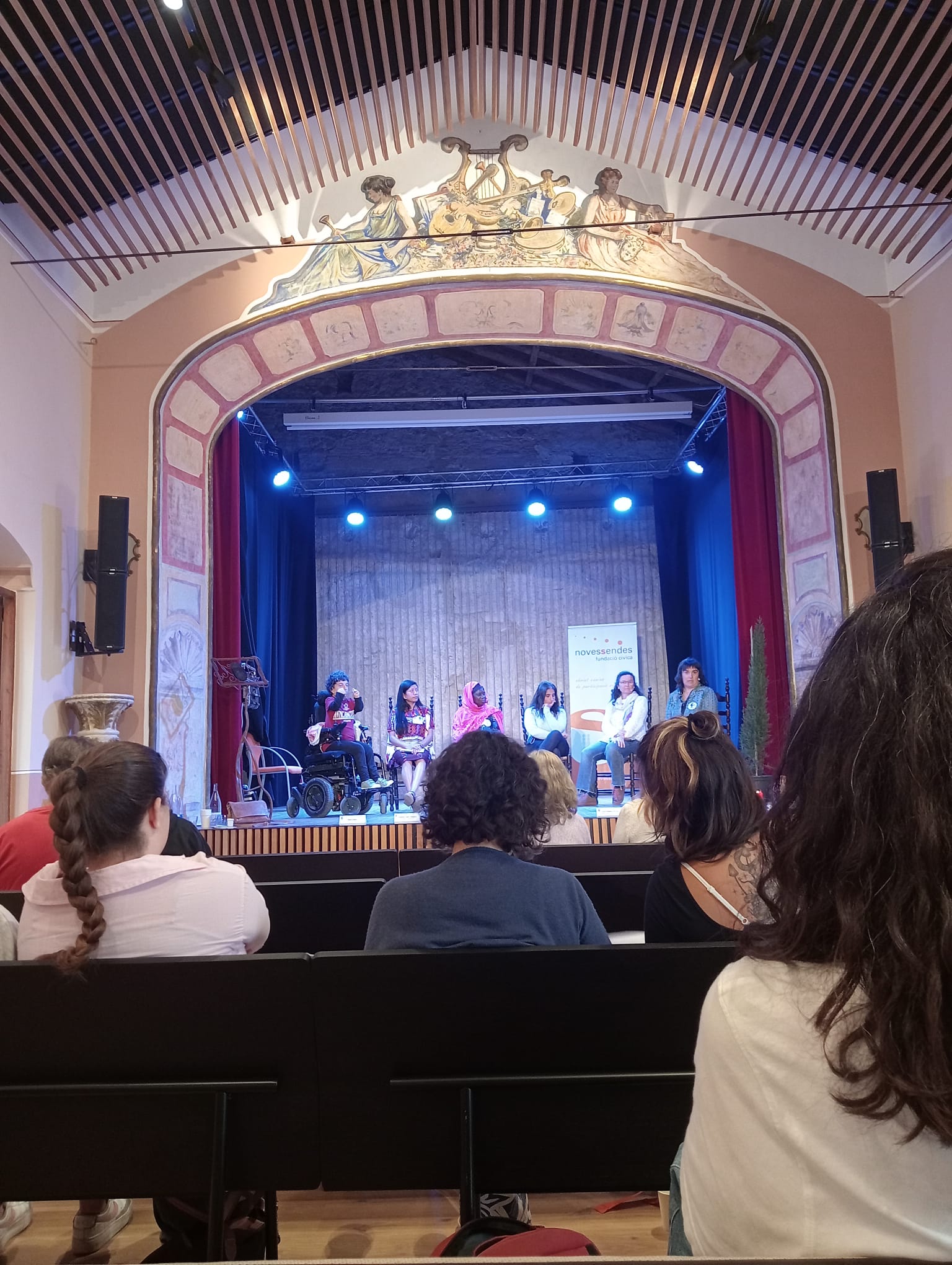
From the perspective of the economy for the common good, nature exists “per se” and should be used by us responsibly, always respecting principles such as ecological empathy, respect, and care.
In this view, anyone requiring land should limit its use and utilize it without cost. The concept of ownership is replaced by that of possession and use.
Responsibility for the distribution and regulation of land for cultivation should lie with local councils, as they are the closest authorities with direct knowledge of their territories and environments.
Bolivia was the first country in the world to include the recognition of the rights of nature in its Constitution, in 2009.
In this reconnection with nature, the importance and need for physical contact with the earth was emphasized — walking barefoot is one of the most effective ways to feel part of it.
In conclusion, the conference highlighted — through the voices of its own protagonists — a collective return to the natural and ecological, as a shared vision for the common good.
We are seeds of life, love, and resilience: let us germinate.

